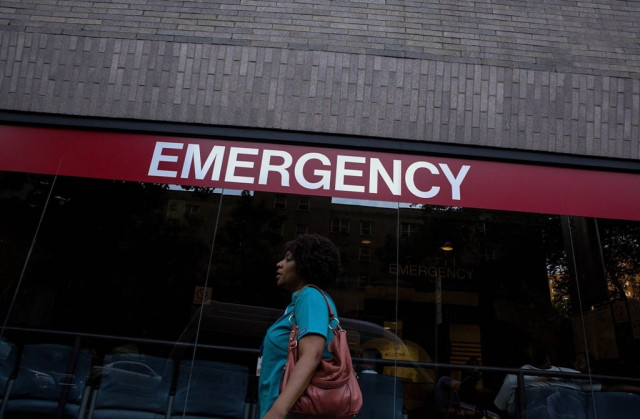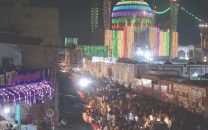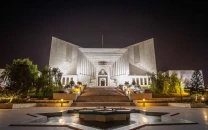Ebola threatens west African economies
Tropical virus has claimed almost 900 lives since it emerged in forests of southern Guinea at start of the year

The tropical virus has claimed almost 900 lives since it emerged in the forests of southern Guinea at the start of the year, but it is also killing off business and threatening manufacturing.
In perhaps the most worrying indication of the epidemic's damage to the wider economy, the World Bank has warned of a possible decline in the key mining sector as expatriate workers abandon the region.
"This Ebola sickness is affecting us... because first, people used to buy from us. But now the money we used to make, we are not making it," says Yukon Morris, a stallholder in the eerily quiet Jorkpeh market, in the Liberian capital Monrovia.
Morris sells ground leaves from cassava, a woody shrub used extensively in west African cuisine and one of the most important food crops in Liberia.
Ebola, which has killed more than half the people it has infected in the current outbreak, spreads through contact with bodily fluids such as blood, saliva and sweat.
Morris says his customers, fearful of coming into contact with their fellow Liberians, are staying away from Monrovia's once-crowded marketplaces.
"If you grind this particular (produce), you sweat. And the people say 'no sweating, no touching', and in this business we cannot put gloves on our hands to do this work."
Fellow trader Kimeh Johnson is also feeling the pinch.
"What I want to tell the government of Liberia and the international community, they should please find a means for (controlling) this Ebola virus," she tells AFP from her vegetable stall.
"So it can stop and our children can go to school freely in a way that our business and everything will be fine. Customers will flow like before. But right now, nothing [is] going on for we, the business people."
The Ebola virus is as terrifying as it is deadly.
Infected people who do not get the correct treatment quickly face muscle pain, headaches, fever and, eventually, an agonising and undignified death soaked in their own vomit, faeces and blood.
The confirmation on Monday of a second case in Nigeria came amid fear and anger about the dead being left unburied in Liberia's capital.
Meanwhile, Sierra Leone's president said that the regional epidemic threatened the "very essence" of the nation.
Global medical and travel security group International SOS says it has received hundreds of requests for advice on Ebola since the beginning of March, with queries up 400 percent month-on-month in June.
The World Bank has pledged $200 million (149 million euros) to help contain the virus and prop up the region's economies, but has warned that the damage to business is already being done.
"With the Ebola virus now directly and indirectly impacting economies in Guinea, Liberia, Sierra Leone and neighbouring countries, the new World Bank Group emergency response will also help countries and communities cope with financial hardship caused by the outbreak," it said in a statement.
The bank said Guinea was expected to experience a full percentage point fall in gross domestic product (GDP) growth, from 4.5 percent to 3.5 percent, while agriculture had been affected in all three countries as rural workers flee farms in the affected zones.
The statement said cross-border commerce had slowed considerably, with land crossings to neighbouring countries closed, and a drop in international flights had reduced the amount of cash coming into the region.
Revenue has further been affected as projects involving expatriate workers or business travellers scale down.
The bank also warned of a possible decline in mining across the region.
The sector is the cornerstone of the economies of west Africa, which sit atop some of the largest deposits of iron ore, diamonds and other minerals in the world.
British operation London Mining said in June it had evacuated "non-essential" staff from Sierra Leone and was screening all staff and visitors entering its sites.
"In the mining sector, if the evacuation of skilled expatriate staff continues, there will be a sizable decline in production," the World Bank said.
Makhtar Diop, the bank's vice-president for Africa, said already poor communities faced the prospect of "losing breadwinners and widespread disruption of their livelihoods".
Monrovia-based financial and political analyst Samuel Jackson said Ebola would increasingly lead to job losses among the low-paid, as consumption of goods and services slowed down.
But he stopped short of predicting complete financial meltdown.
"Right now, no one can determine the actual magnitude of the economic consequences," he told AFP.
"It will depend on the number of days it takes and also some of the (measures) by the government to mitigate the economic consequences."



















COMMENTS
Comments are moderated and generally will be posted if they are on-topic and not abusive.
For more information, please see our Comments FAQ